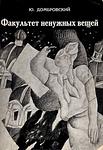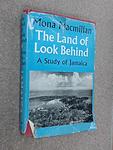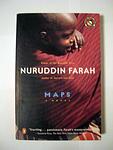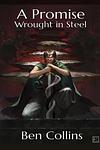The Greatest Russian, Unknown "Historical fiction, Fiction" Books Since 1950
Click to learn how this list is calculated.
This list represents a comprehensive and trusted collection of the greatest books. Developed through a specialized algorithm, it brings together 300 'best of' book lists to form a definitive guide to the world's most acclaimed books. For those interested in how these books are chosen, additional details can be found on the rankings page.
Genres
Historical fiction is a genre of literature that combines fictional stories with real historical events, settings, and characters. These books often take place in a specific time period and are based on research and factual information, but also include imaginative elements to create a compelling narrative. Historical fiction allows readers to experience the past in a unique and engaging way, while also providing insight into the social, cultural, and political issues of the time.
Countries
Date Range
Reading Statistics
Click the button below to see how many of these books you've read!
Download
If you're interested in downloading this list as a CSV file for use in a spreadsheet application, you can easily do so by clicking the button below. Please note that to ensure a manageable file size and faster download, the CSV will include details for only the first 500 books.
Download-
1. Doctor Zhivago by Boris Pasternak
Set against the tumultuous backdrop of the Russian Revolution, the book follows the life of a physician and poet, Yuri Zhivago, as he navigates the political and social upheaval of the early 20th century. Torn between his love for two women, his wife Tonya and his passionate mistress Lara, Zhivago's personal struggles mirror the larger societal changes occurring around him. The novel explores themes of love, war, and the human spirit, offering a poignant and complex portrait of life during a time of revolutionary change.
-
2. Life and Fate by Vasily Grossman
"Life and Fate" is a sweeping epic that explores the human condition during the Siege of Stalingrad in World War II. The novel delves into the lives of a wide range of characters, from soldiers and scientists to children and victims of the Holocaust, providing a stark and unflinching portrayal of the horrors of war, the brutality of totalitarianism, and the resilience of the human spirit. At the same time, it also examines themes of love, loss, and the struggle for freedom and dignity in the face of overwhelming adversity.
-
3. Cancer Ward by Aleksandr Solzhenitsyn
"Cancer Ward" is a poignant novel set in a Soviet cancer hospital in the mid-1950s. It follows the lives and struggles of patients and doctors, exploring their personal histories, relationships, and the political environment of the time. The hospital serves as a metaphor for the oppressive Soviet state, with cancer symbolizing the malignant growth of totalitarianism. The book also explores themes of mortality, the human spirit, and the will to survive.
-
4. Summer in Baden-Baden by Leonid Tsypkin
"Summer in Baden-Baden" is a unique blend of fact and fiction that intertwines the author's own travels to Leningrad with a reimagining of Fyodor Dostoevsky's summer in Baden-Baden, Germany. The narrative shifts between the two journeys, exploring themes of obsession, identity, and the power of literature. The author's fascination with Dostoevsky serves as a lens through which he examines his own life and experiences as a Jew in Soviet Russia, while also providing a fresh perspective on the famous Russian author's life and works.
-
5. August 1914 by Aleksandr Solzhenitsyn
"August 1914" is a historical novel set during the early days of World War I, focusing on the disastrous Battle of Tannenberg on the Eastern Front. The book provides a detailed portrayal of the Russian army's defeat, largely due to incompetent leadership and lack of communication. The narrative also delves into the lives of the soldiers and civilians involved, offering a broad examination of Russian society and the impending revolution.
-
6. December Bride by Sam Hanna Bell
"December Bride" is a poignant and captivating novel set in rural Northern Ireland during the early 20th century. The story follows the life of a young woman named Sarah, who finds herself caught between tradition and her own desires. As she navigates the complexities of love, family, and societal expectations, Sarah must make difficult choices that will shape her future. With its vivid descriptions and richly drawn characters, this book explores themes of identity, sacrifice, and the enduring power of love.
-
7. Black List, Section H by Francis Stuart
"Black List, Section H" is a gripping and thought-provoking novel that delves into the complex themes of identity, loyalty, and the consequences of war. Set during World War II, the story follows a group of individuals who find themselves entangled in a web of espionage and betrayal. As they navigate the treacherous landscape of Nazi-occupied Europe, their loyalties are tested, and they must confront the moral dilemmas that arise when faced with impossible choices. With its rich character development and atmospheric setting, this book offers a compelling exploration of the human spirit in the face of adversity.
-
8. Dervish And The Death by Meša Selimović
"Dervish and the Death" is a thought-provoking novel that delves into the complex themes of identity, morality, and the human condition. Set in the 18th century Ottoman Empire, the story follows a dervish, Sheikh Nuruddin, as he navigates the turbulent world of politics, power, and religion. Through his encounters with various characters, including the enigmatic Death, the dervish grapples with his own beliefs and questions the nature of existence. Selimovic's masterful storytelling and introspective prose make this novel a captivating exploration of life's fundamental questions.
-
9. The White Ship by Chinghiz Aitmatov
"The White Ship" by Chinghiz Aitmatov is a poignant and thought-provoking novella set in a remote village in Kyrgyzstan. The story follows a young shepherd named Mati, who embarks on a dangerous journey to rescue his fellow villagers after a devastating avalanche. Through Mati's experiences, the author explores themes of courage, sacrifice, and the resilience of the human spirit in the face of adversity. With beautiful prose and vivid descriptions, Aitmatov paints a vivid picture of the harsh yet enchanting landscapes of Kyrgyzstan while offering a powerful commentary on the strength of community bonds.
-
10. Sofia Petrovna by Lydia Chukovskaya
The book is a poignant narrative set during the Stalinist purges of the 1930s in the Soviet Union. It follows the story of a loyal and hardworking widow who is confronted with the brutal reality of the regime when her beloved son is arrested on false charges. As she navigates the Kafkaesque bureaucracy to seek justice for her son, her faith in the government and its policies is shattered. The novel offers a harrowing look at the terror of the Great Purge and the impact of political oppression on the lives of ordinary citizens, as the protagonist grapples with the disintegration of her world and the moral dilemmas posed by a society steeped in fear and denunciations.
-
11. Death And Nightingales by Eugene McCabe
"Death and Nightingales" is a gripping and atmospheric novel set in 19th-century Ireland. The story follows Beth, a young woman trapped in a loveless marriage, who plans to escape with her lover, Liam. As the narrative unfolds over the course of a single day, tensions rise, secrets are revealed, and the characters' lives become entangled in a web of desire, betrayal, and violence. With its richly drawn characters and evocative prose, the book explores themes of love, power, and the consequences of one's choices in a society marked by oppression and turmoil.
-
12. The Burn: A Novel in Three Books : (late Sixties--early Seventies) by Vassily Aksyonov
"The Burn: A Novel in Three Books : (late Sixties--early Seventies)" is a historical novel that explores the cultural and political landscape of the Soviet Union during the late 1960s and early 1970s. The book follows a group of intellectuals, artists, and dissidents who are striving to preserve their individuality and freedom in a society that is increasingly oppressive and conformist. The narrative is punctuated by surreal and fantastical elements, reflecting the characters' struggle to maintain their sanity and dignity in a world that seems to be spiraling into madness.
-
13. The Faculty of Useless Knowledge by Yuri Dombrovsky
"The Faculty of Useless Knowledge" delves into the life of a historian caught in the oppressive atmosphere of Stalinist Russia. The narrative explores the intellectual and emotional turmoil of the protagonist, who is ensnared in the brutal machinery of the Soviet state's ideological and bureaucratic control. Through his experiences and reflections, the book examines themes of memory, history, and the struggle to maintain intellectual integrity in a repressive society. The protagonist's journey is a poignant commentary on the value of knowledge and the human spirit's resilience against totalitarian forces.
-
14. A Small Country by Sian James
"A Small Country" is a poignant novel set in a rural Welsh community, where the lives of the inhabitants are deeply intertwined with the land and each other. The narrative explores the complexities of human relationships, the challenges of change, and the enduring strength of family and tradition. As the characters navigate personal struggles and societal shifts, the story delves into themes of identity, belonging, and the bittersweet nature of progress. The novel paints a vivid portrait of a way of life that is at once resilient and vulnerable to the inexorable march of time.
-
15. Farewell To Matyora by Valentin Rasputin
The book is a poignant exploration of the tension between progress and tradition, set in a small Siberian village that is doomed to be submerged by the construction of a hydroelectric dam. As the government mandates the relocation of the village's inhabitants, the narrative delves into the lives of the villagers who are grappling with the loss of their ancestral home and way of life. The story is a meditation on the cost of modernization, the deep connection between people and their land, and the inevitable passing of time that brings change, often at the expense of cultural heritage and personal identity. Through the villagers' resistance and sorrow, the novel examines themes of environmental impact, the clash of ideologies, and the resilience of the human spirit in the face of displacement.
-
16. Moon Over Africa by Pamela Kent
Set against the evocative backdrop of Africa, this novel follows the journey of a young Englishwoman who leaves the familiarity of her home to embark on an adventurous life in Africa with her husband. As they navigate the challenges and wonders of their new surroundings, their relationship is tested by the mysteries and dangers they encounter. The story is a rich tapestry of love, adventure, and the quest for belonging, showcasing the transformative power of the African landscape on the lives of those who dare to explore its depths.
-
17. The Great Brain; More Adventures Of The Great Brain; Me And My Little Brain; The Great Brain At The Academy; The Great Brain Reforms (The Great Brain, Volumes 1 5) by Unknown
This series follows the escapades of a young boy with a reputation for being the cleverest trickster and con artist in his small Utah town in the late 19th century. Known for his sharp intellect and a knack for turning a profit, he navigates childhood with his friends and family, often using his "great brain" to solve problems, outwit adults, and occasionally help his peers, all while making a penny or two. Whether he's running schemes at his boarding school or reforming his ways back home, his adventures are a mix of humor, heart, and lessons learned.
-
18. The Land Of Look Behind by Michelle Cliff
The book is a poignant exploration of identity, history, and the enduring impact of colonialism in Jamaica. Through the eyes of its protagonist, a Jamaican woman who returns to her homeland after years in the United States, the narrative delves into the complexities of her personal journey and the island's tumultuous past. As she reconnects with her roots and confronts the ghosts of slavery and oppression that haunt the landscape, the story weaves a rich tapestry of memory, culture, and the search for belonging in a land marked by beauty and scarred by injustice.
-
19. The Threshing Floor by Barbara Burford
"The Threshing Floor" is a thought-provoking novel that delves into the complexities of identity, sexuality, and the intersections of science and personal ethics. Set against the backdrop of a futuristic society, the narrative follows the journey of a geneticist who grapples with the moral implications of her work in genetic engineering. As she navigates the challenges of her profession, she also embarks on a quest for self-discovery, exploring her own desires and the nature of human connection. The book raises profound questions about the manipulation of life, the essence of individuality, and the price of progress, all while weaving a story of love, ambition, and the search for truth.
-
20. Maps by Nuruddin Farah
"Maps" by Nuruddin Farah is a compelling novel that delves into the complex themes of identity, exile, and the search for belonging. Set in Somalia during a time of political turmoil, the story follows Askar, a young boy who is caught between conflicting cultural and political forces. As he grows older, Askar becomes increasingly aware of the divisions within his society and struggles to navigate the shifting landscapes of his own identity. Through vivid storytelling and rich character development, Farah explores the power of maps as both physical representations of territory and metaphorical symbols of personal and national boundaries.
-
21. Ualalapi by Ungulani Ba Ka Khosa
"Ualalapi" is a powerful and thought-provoking novel that delves into the complex history and cultural identity of Mozambique. Through a series of interconnected stories, the book explores themes of colonialism, war, and the struggle for independence, as well as the impact of these historical events on individuals and society. With lyrical prose and vivid imagery, the author skillfully weaves together folklore, mythology, and real-life experiences to create a captivating narrative that challenges readers to reflect on the legacy of the past and its influence on the present.
-
22. The Ice People by Unknown
The book in question is a speculative fiction novel set in a dystopian future where a sudden and severe ice age has gripped the Earth, leading to the collapse of civilization and the emergence of a new society. The story follows the protagonist, a historian, who discovers the truth about the ice age's origins and the existence of an advanced prehistoric civilization. As the protagonist delves deeper into the past, he uncovers startling revelations about humanity's history and the cyclical nature of human progress and decline, all while navigating the challenges of life in a frozen world.
-
23. The Crowned Wanderer by Rahim Esenov
"The Crowned Wanderer" is a captivating tale set in a fictional world where a young wanderer named Zahir embarks on a transformative journey. As he travels through enchanting landscapes and encounters diverse characters, Zahir learns profound lessons about love, loss, and the complexities of human nature. With poetic prose and rich imagery, the novel explores themes of self-discovery, destiny, and the eternal search for meaning.
-
24. The Captains And The Kings by Jennifer Johnston
"The Captains And The Kings" is a poignant and introspective novel that delves into the complex dynamics of a wealthy Irish family. Set against the backdrop of political unrest and social change in Ireland, the story follows the lives of the dysfunctional King family as they navigate through personal tragedies, secrets, and the weight of their own expectations. With beautifully crafted prose and deeply flawed characters, the book explores themes of love, loss, and the enduring power of family bonds.
-
25. Medea And Her Children by Lyudmila Ulitskaya
"Medea And Her Children" by Lyudmila Ulitskaya is a powerful and emotionally charged novel that delves into the complex relationships between a mother and her children. Set in Soviet Russia, the story follows the lives of three generations of women as they navigate the challenges of love, sacrifice, and the oppressive political climate. Through vivid and compelling storytelling, Ulitskaya explores the universal themes of family, loyalty, and the enduring strength of a mother's love.
Reading Statistics
Click the button below to see how many of these books you've read!
Download
If you're interested in downloading this list as a CSV file for use in a spreadsheet application, you can easily do so by clicking the button below. Please note that to ensure a manageable file size and faster download, the CSV will include details for only the first 500 books.
Download
















